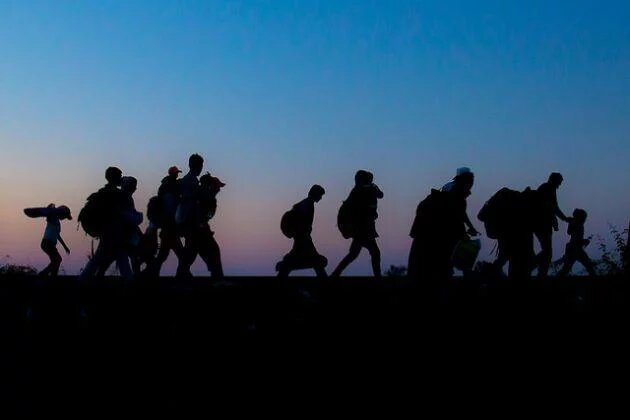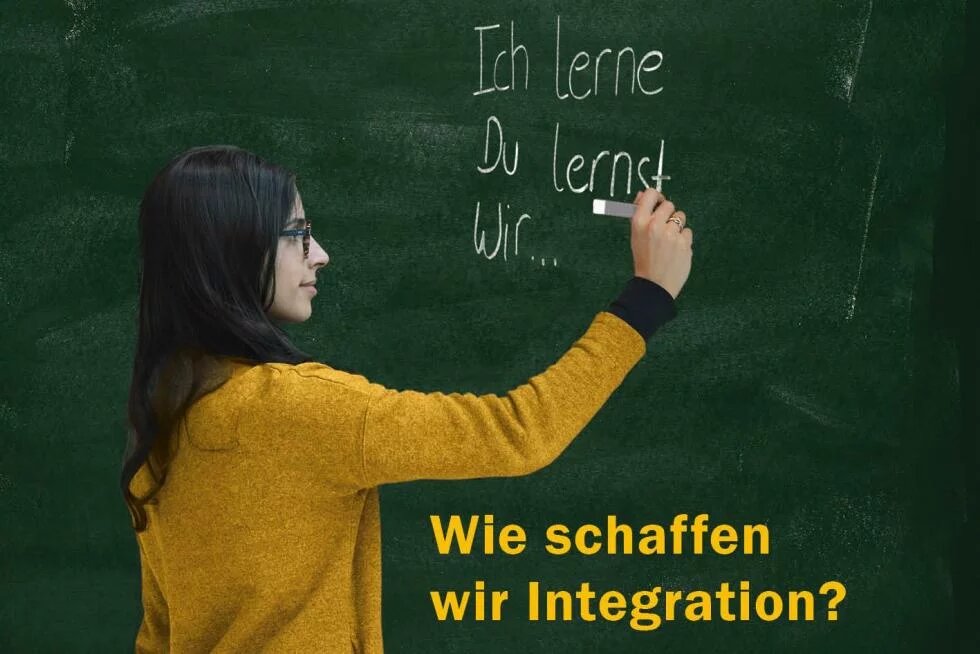

The second core area of the programme in 2016 is dedicated to the growing challenges of a future refugee policy whilst focusing on migration and integration. The international conference „How can we manage integration" as well as in many debates and web activities an exchange along the conflict lines within Europe is encouraged.
The Refugee Crisis and its Impact on the European Union – More Disunity, Ultimate Failure or Pragmatic Emergency Solution?
March 16, 2016 – Brussels, Belgium
Lunch Debate
More than 1 million asylum seekers arrived in Europe last year. The situation overwhelmed national governments and EU Institutions alike and further disrupted the relations between Member States. The Dublin Agreement, finally accepted as unfair and unsustainable, was blown to pieces along with the rest of the common asylum system; the Schengen agreement is on the brink of collapse. Every Member State seems to follow and defend its own agenda. Some erected fences along their borders even at borders with other Member States. Deep divisions (between east – Visegrad – and west, north and south, periphery and centre, and lately even between core members of the Union) are visible. Will the migration crisis drive the Union even further apart? Seven Migration Summits have not brought about a sustainable solution. Agreements are not being implemented. The communication channels between the various (groups of) countries seem to be blocked. The mood among EU citizens, helpful and positive in many countries at the outburst of the crisis, is changing. Populists have rushed in where main stream parties feared to tread and have taken over the political discourse. In the meantime, the refugees keep coming. What can be done to unblock the communication channels, unify the Member States on a pragmatic and responsible solution acceptable for all, which is also fair to the neighbouring non-EU countries, and give the refugees a humane perspective? And how can the political discourse be taken back from the populists?
Guest speakers were: Peter Bosch (Senior Expert Unit on Inter-institutional relations and Citizenship, DG Migration and Home Affairs, European Commission); Jelena von Helldorff (Senior Policy Advisor, Centre for European and International Policy Action); Julija Kranjec (Programme Director, Centre for Peace Studies, Croatia) and Bodil Valero (Member of European Parliament Greens/EFA, Sweden). The debate was moderated by the director of the Heinrich-Böll-Stiftung European Union, Klaus Linsenmeier.
The consequences of the migration crisis for Germany and the EU
Conference
April 24, 2016 – Posen, Poland
The conference will focus on panels with experts: 1. the current refugee policy in Germany and 2. the challenges for the European Union. The conference is part of various projects in the field including a seminar, an exhibition and debates. The event is taking place during the festivities for the 25th anniversary of the German-Polish Neighbor-Treaty.
The following articles have been published:
- "Działania Komisji Europejskiej wobec kryzysu migracyjnego" by Tomasz Morozowski
- "Niemcy a kryzys wywołany napływem uchodźców – geneza, reakcje i wyzwania" by Dr. Marcus Engler
Current Populism in Europe: Impact on the Political Landscape
International Conference
May 23-24, 2016 – Prague, Czech Republic
The conference is organized by the Institute of International Studies at Charles University, the Heinrich-Böll-Stiftung and by the Goethe-Institut Prag. The venue of the conference is the Goethe-Institut which provides a very representative character of the whole event. The conference is under the auspices of the rector of Charles University, prof. Tomáš Zima, and the ambassador of the Federal Republic of Germany, H.E. Arndt Freiherr Freytag von Loringhoven, whom both will be participating at the opening of the public part of the event.
Sites of flight and migration – Responsabilty and solidarity
Conference
June, 24 and 25, 2016 – Berlin, Germany
Approximately one million people arrived in Germany last year seeking refuge. This development was accompanied by an impressive welcoming culture, but also by numerous protests and incendiary attacks against refugee shelters. A successful immigration policy is one that emphasizes integration and is supported by members of society. “How do we achieve integration?” is, therefore, the title of this year’s “Baustelle” – a congress annually organized by Heinrich Böll Stiftung. Which opportunities does migration provide for our society against the backdrop of demographic change? Which challenges and conflicts are affiliated with increasing immigration and the arrival of refugees? How can we succeed in reducing the fears and insecurities of the local population?
Note: There will be translation into English for Workshop #6, as well as simultaneous translation during the rest of the conference.
Hashtag: #baustelle_integration
Some of the speakers are: Katrin Göring-Eckardt MdB (Co-chair of the Green Party Faction in the Bundestag), Prof. Naika Foroutan (Berlin Institute for Integration and Migration Research, BIM), Seyran Ateş (Lawyer, Author), Dr. Oliver Junk (Mayor of the city of Goslar), Sybille Haußmann (District administration Düren, Head of Office for Schools, Education and Integration) and Breschkai Ferhad (Neue Deutsche Organisationen).
Accompanying Programme:
- „Environmental Migrants: The Last Illusion“ - Exhibition
- Film screening, Friday, 24th June 2016 “Research Refugees”
- “Shifting Perspective”: A one-to-one tour through Neukölln, B_Tour in collaboration with Ilona Marti (artist)- Application
- Workshop with registration: Sunday 26th June 2016: “Building Political Leadership in Immigrant, Minority & Refugee Communities”
Besides the planned lectures, debates and a broad cultural programme the congress offers workshops in the following topics: educational integration of refugees, integration in training and profession, migrant self-organization and integration of refugees in communities, volunteers, fundamentalists in the immigarion society,integration as a historical experience, and building political leadership. The conference will be broadcastet via a livestream.
The EU-Turkey Refugee Deal: Failure, Success or Betrayal of European Values?
July 13th, 2016 – Brussels, Belgium
Lunch Debate
The EU-Turkey agreement on how to ‘end the irregular migration from Turkey to the EU’ entered into force on 20 March. The agreement was immediately called immoral by many critics who emphasised that the European Union had spent several decades preaching its own high asylum standards to other countries whereas now it has come under pressure by an unprecedented high arrival of refugees seems to be all too ready to betray its own principles. In the meantime the ‘refugee deal’ has been challenged at the European Court of Justice by three refugees and recently Médecins Sans Frontières (MSF) refused further EU funding as a protest against the ‘continuing attempts to push people and their suffering away from European shores’. Human rights groups have accused Turkey (that with 3.1 registered refugees hosts the largest number of refugees in the world) of deporting refugees to unsafe countries like Syria, Iraq and Afghanistan. The EU maintains that the deal is perfectly legal and respects the refugee laws and the principle of non-refoulement. What are the effects of the three months-old agreement on Turkey, on Europe and on the refugees? Will the agreement collapse in case the visa liberalisation for Turkish citizens cannot be achieved? Will the refugees pay the price for the growing tensions between Brussels and Ankara?
Speakers are: Veysel Eşsiz (Programme Officer Refugee Rights Center Turkey RRT), Omar Kadkoy (Analyst, The Economic Policy Research Foundation of Turkey TEPAV), Reem Alsalem (Consultant in Humanitarian Affairs; formerly UNHCR staff) and Simon Rau (Mercator Fellow on human rights impact EU-Turkey deal, former personal assistant to General Secretary European Center for Constitutional and Human Rights ECCHR).

